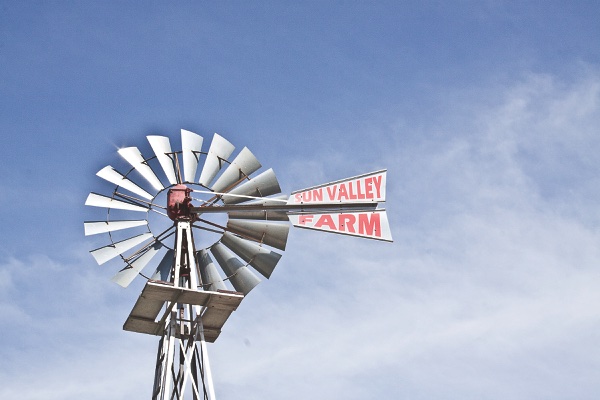When the Huntley Historical Society was formed five years ago, its leaders identified their top priority – create a museum where the community’s history could be collected, displayed, and preserved.
Today, five years later, this dream is much closer to becoming a reality.
The Huntley Park District and the society have joined together to make this project happen. The joint project has been approved in concept. The 180-year-old Sun Valley Farm at Main Street and Lois Lane has been selected as the site. Some utility work has been done to restore the facilities to current codes. The park district has cleared out its storage materials.
Perhaps most important, two key individuals have come alongside the project to give it the promise of competent leadership leading to fund raising and final renovations. These two are James Blasky, who is a current park district commissioner and president of the historical society, and James G. McConnell, a Huntley-based attorney specializing in construction law.
“We need about $50,000 to get this done, and our focus right now is fund-raising and educating the community about this project,” Blasky said recently. The Sun Day met with him to get an update after originally reporting on it three years ago.
First, a bit of history. The Sun Valley farmhouse and outbuildings at Main Street and Lois Lane are owned by the park district, which purchased it from the Edwin Deicke estate in 1999 for $800,000. Half of this amount was reimbursed by a grant from the Illinois Department of Natural Resources Open Space Lands Acquisition & Development Grant Program.
The farmhouse and outbuildings are part of a 35-acre tract that is known as Betsey Warrington Park, named after a former park district director. Most of the tract has been converted into athletic fields and a picnic shelter. The northernmost portion of the tract contains the farmhouse and a smoke house, truck barns, storage sheds, an ice house, and a chicken coop. The site has been designated as an historical landmark by the McHenry County Historical Preservation Society.
The park district used the farmhouse for storage in recent years, but the home, which is still structurally sound, is now empty. Electrical and HVAC facilities have been upgraded.
McConnell conducted a preliminary evaluation of the house 14 months ago for converting it into a historical museum. He also reviewed all of the legal documents that govern use of the property.
“The documents present no legal obstacle which would forbid conversion of the farmhouse and its outbuildings into a museum operated by the historical society as a tenant or concessionaire of the Huntley Park District,” he said.
The farmhouse site will have to be rezoned by the village at an estimate cost of $5,138, he added. He also estimated that it will cost about $36,000 to construct a handicapped ramp for access to the farmhouse, modify stairs and railings leading to a second floor and basement, renovate two ground floor bathrooms, and install a fire sprinkler system, should it be required by the village, The estimates do not include painting and decorating, or the purchase and installation of display cases and furnishings, McConnell said.
“This has been an idea and dream for as long as the historical society has existed,” Blasky said. “The park district has done a lot of work to upgrade the house, and this evaluation gives us a game plan as we move ahead. “We are looking for a corporate grant or donations, and we are also partnering with the Huntley Chamber of Commerce in publicizing our plans, contacting potential donors, and conducting fund raising activities.”

Windmill located at Sun Valley Farm on Main St. and Lois Lane. With much anticipation, the farm will become the home of the Huntley Historical Society. (Photo by Chris LaPelusa/Sun Day)
Blasky now occupies a key position for this project. He has been a Huntley Park District commissioner for more than seven years, he is an experienced (retired) park district executive in the Chicago area, and he recently was elected the third president of the Huntley Historical Society.
“We want to make this museum not only an attractive place to view and enjoy Huntley’s history, but also as an educational center for students and children,” Blasky said. “It is so fitting that this site is one of the most interesting historical places in the Huntley community.”
McConnell has recommended further architectural and construction investigation in conjunction with the village staff and fire protection officials, to determine in detail what has to be done and prepare current cost estimates.
“If the park district and the historical society are indeed interested in proceeding with such a project, there may be grant funds available from both public and private sources to assist in funding the project,” McConnell concluded.
In the last five years, the society has collected a large amount of historical memorabilia artifacts and materials, and placed it temporarily in the basement of village hall. It also has been conducting interviews with long-time Huntley residents on their experiences in village history.
“We are trying to build rapport between the old and the new in Huntley,” Blasky said. “We need to generate more public support and awareness of the society and in particular this project.”




